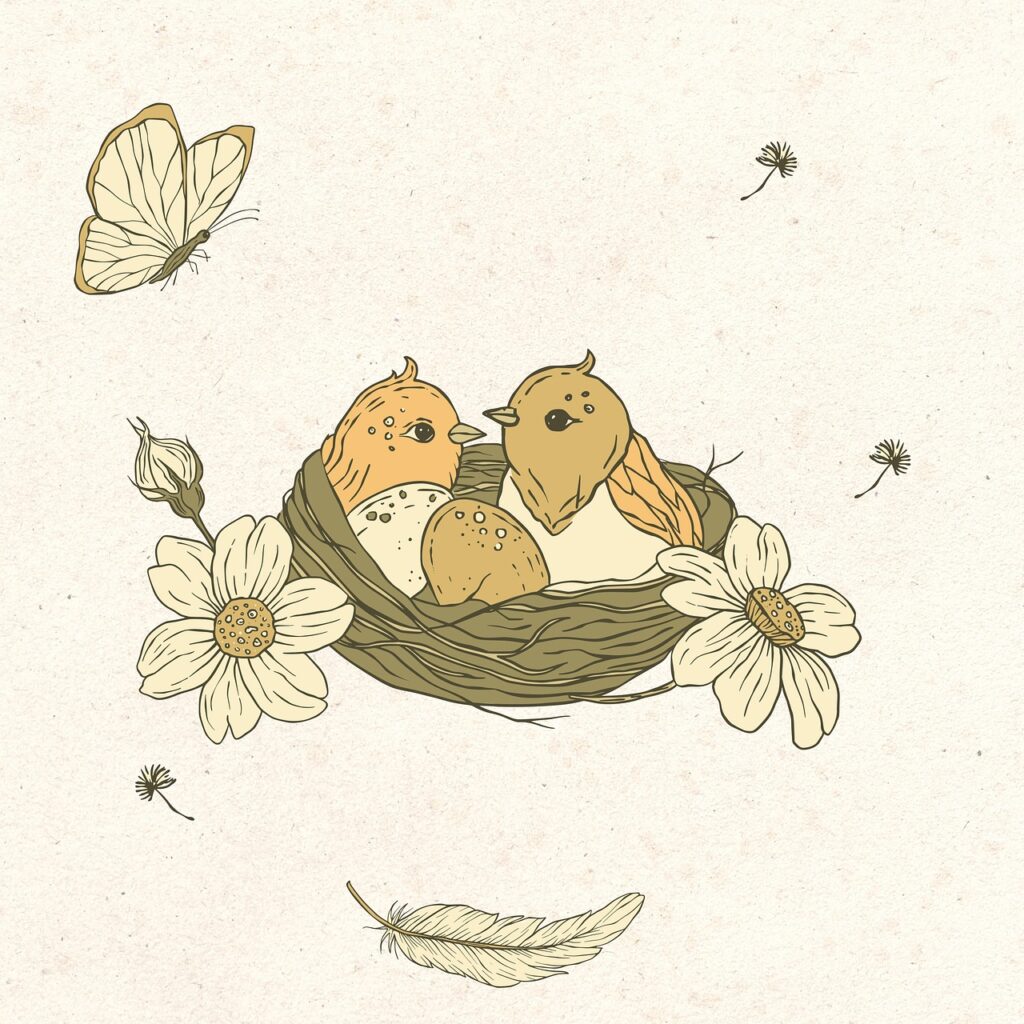
Today is May 4th, and on this day in history, a quiet revolution took flight. In 1894, a school superintendent named Charles Almanzo Babcock in the small town of Oil City, Pennsylvania, created something remarkable – the first holiday in America dedicated entirely to birds. Simple in concept yet profound in impact, Bird Day was born.
Morning comes differently when you listen for it. The world wakes in layers – first the robins with their clear, hopeful notes, then the sparrows with their chatter, finches adding their warble to the growing chorus. Before the human world stirs, before engines and voices, the birds are already deep in conversation. They’ve been doing this since long before we built our first cities, since before we learned to speak ourselves.
What is it about birds that draws our gaze upward? Maybe it’s the ancient longing for flight, the dream of defying gravity that birds make look so effortless. Or perhaps it’s their wildness – they live alongside us but never quite belong to our world. They touch down in our gardens, visit our feeders, but remain essentially free in ways we can only imagine.
Birds connect worlds. A warbler in your backyard today might have been in Costa Rica last month. The geese overhead follow pathways that predate our maps, our nations, our borders. They carry seasons on their wings – their arrivals and departures marking time more reliably than any calendar.
When Babcock established this day, America was changing rapidly. Forests were falling to industry, cities were swelling, and the passenger pigeon – once so numerous its flocks darkened skies for days – was vanishing before people’s eyes. In this context, setting aside a day for birds wasn’t mere sentimentality; it was a recognition that something essential was slipping away.
I wonder what Babcock would think of our world now. Would he marvel at how birds adapt to our cities, nesting in skyscrapers like contemporary cliffs? Would he be heartened by the birders with their apps and expensive binoculars, or distressed by the silent springs in places where birds once thrived?
They don’t care about your social status or bank account. The same cardinal visits the yard of the mansion and the apartment complex. The same hawk circles above the city park and the country field. In this way, birds are the great equalizers – they belong to everyone and no one.
The human mind, always racing forward, benefits from watching birds. To observe them requires presence, patience, a slowing down. You cannot rush a bird into revealing itself. You must wait, watch, and listen. In our hyperconnected age, this is a gift – the invitation to simply be where you are, attentive to what unfolds.
Birds remind us of fragility. An egg, a nestling – so vulnerable yet containing such possibility. And in that fragility lies a mirror to our own condition. We too are more delicate than we care to admit, dependent on the same web of life that sustains all winged creatures.
Perhaps that’s why Bird Day endures, why we still mark this occasion over a century later. In celebrating birds, we celebrate something both ancient and immediate – the wild pulse that beats through our world, connecting past to present, earth to sky.
So today, look up. Listen. The birds have been singing their part of the world into existence every morning since before human memory began. On this Bird Day, they invite us to join their chorus – not with song, perhaps, but with attention, with care, with wonder.
Leave a Reply